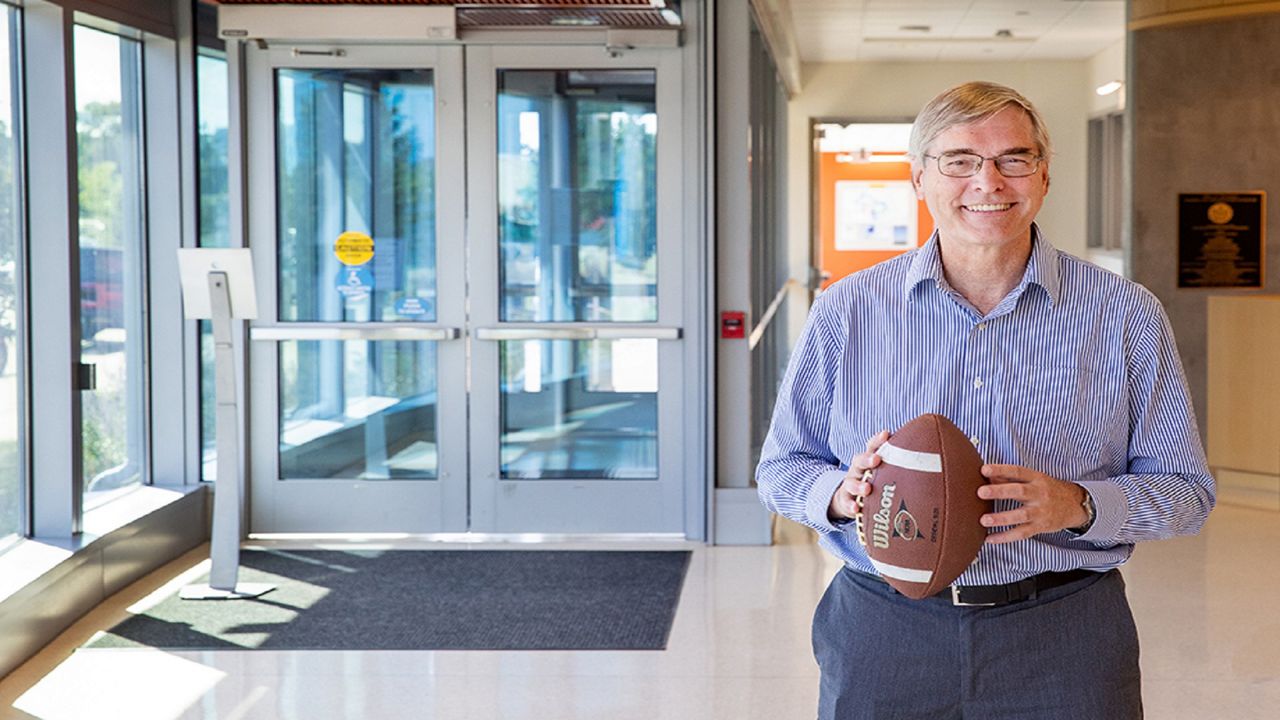David M. Hale felt certain of his position. A staff writer at ESPN — and after watching Florida State blow a huge lead against BYU - he took his thoughts public.
What You Need To Know
- Paul Roebber led a research team in an attempt to answer an age-old sports question: Is momentum real?
- Roebber is a professor of mathematical sciences at UW-Milwaukee
- He developed a model he said is comparable to the point spread at the beginning of a game, and improves from there on with little bias
- Read Roebber's research paper here
“Momentum is not a real thing,” he tweeted.
Then, he waited for the responses he was sure would support his stance.
When he checked back on his account, the replies included:
“Momentum is definitely a real thing in football!!!”
“It appears you’re not that bright.”
“Trash take. ... Delete your account.”
So once again, one of the biggest rabbit holes in all of sports was open for business.
Paul Roebber, a UW-Milwaukee professor of mathematical sciences, decided to lower himself into the chasm and apply science in an effort to find a definitive answer.
The result? It’s not good news for David M. Hale.
Roebber said the fans are right. Momentum is a real thing.
He developed a model he said is comparable to the point spread at the beginning of a game, and improves from there on with little bias.
“I had been aware for some time that this issue of momentum and streakiness in sports has been a contentious issue,” Roebber said. “There have been a number of papers, mostly written by psychologists, suggesting that what this is, actually, is just false pattern recognition.
“There’s also a physiological argument that says the opposite, plus, of course, player and fan experience, which strongly suggests that it really does exist. So what’s the issue here? So I thought that’d be really interesting to look at it. And see if we could find any quantitative support for that idea.”
Roebber said his definition of momentum is based on team, not individual success.
“When we did that, we found this overwhelmingly strong, significant streakiness that occurs which cannot be associated with random chance,” he said.
Roebber and graduate student Brian Burlingame — who was working on his thesis in an unrelated area but wanted to learn more about data science, and was a football fan — studied NFL play-by-play regular season data over a 10-year period. The results showed momentum within a game is real and it improves a team’s chances of winning.
“I should mention the physiological basis for this is what’s called the ‘winner effect,’” he said. “Which is basically you build on success. So you have one win, then you build another win, and physiologically, it’s essentially a testosterone boost. And there’s also a reduction in stress hormones when you have those wins. So there actually is a physiological reason for why this might exist.”
Roebber used two neural networks — a series of algorithms that tries to recognize underlying relationships in a set of data through a process that mimics the way the human brain operates — to predict the probability of a team winning through momentum.
Roebber also defined momentum as a consistent change in win probability over at least three successive changes in possession.
“So you might be on offense and score points, and then you’re on defense and you get a stop,” he said. “And then you’re in good field position, you go down, you score again. And so, those three possessions would increase your win probability over each one of those, and that would indicate a streak.
“But what we wanted to see is if we have occurrences of those streaks that are more often than what you would expect just from random chance.”
Roebber said all three phases — offense, defense and special teams — could be involved in setting up a streak, but the defense is more likely to start one.
He also said momentum streaks are more likely to start earlier in a quarter with more time on the clock.
“And if the score is pretty close, and particularly if you’re trailing but within one score, you’re more likely to see that develop,” he said.
So, the next time you’re at a game, and a series of events leads you to feel as if momentum is swinging in your team’s favor, and the chances of your team winning are improving, now you know it’s more than a feeling.
“It was a lot of fun,” Roebber said. “That’s one of the nice things about working with students, is that they come up with something you might not have been thinking about doing anything with it. My field is meteorology. It’s not professional sports. But you know, because of the data science connection, I could look at interesting things like this."
Story idea? You can reach Mike Woods at 920-246-6321 or at: michael.t.woods1@charter.com



